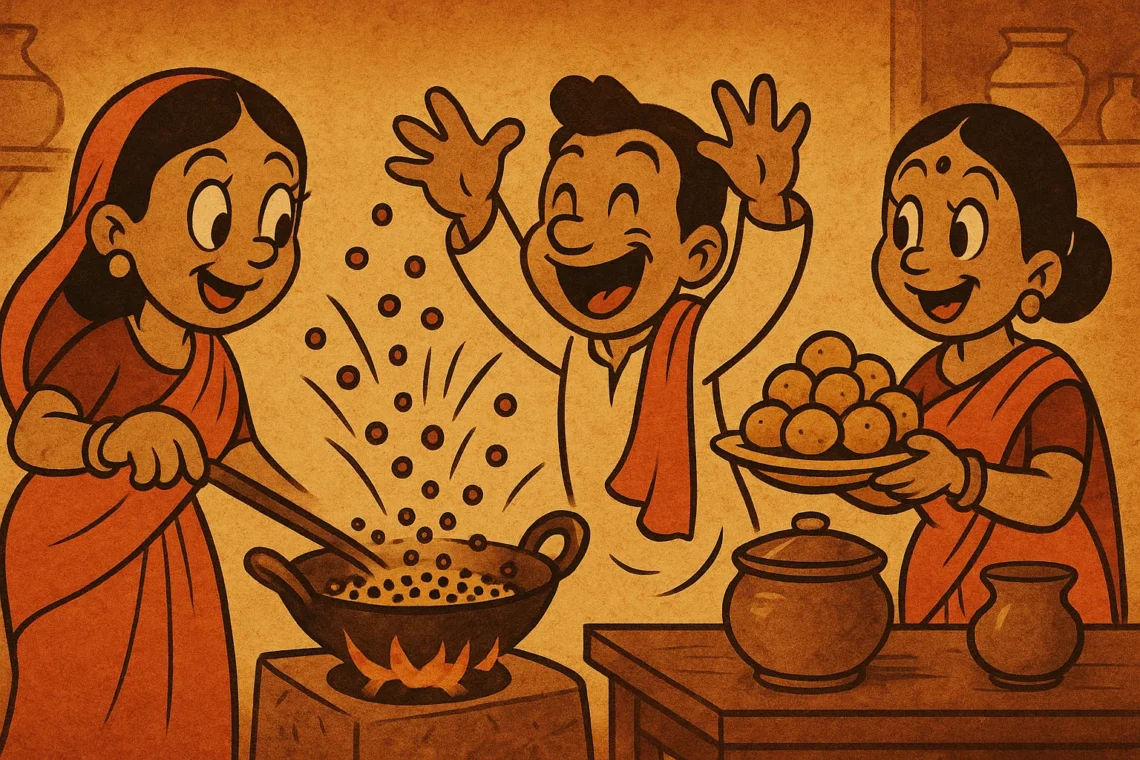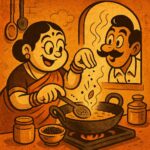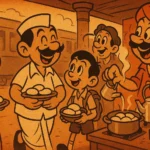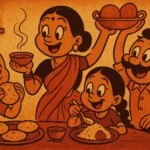There’s a very specific moment in Indian cooking—right after the oil heats, right before everything else begins—when you drop in the mustard seeds. You wait. There’s silence. And then, a tiny pop. Another. Then a flurry of crackles, like applause in miniature. That’s the cue. The moment the kitchen comes alive. Because mustard seeds know when to pop. Not too early, not too late. They have timing. Confidence. Drama. They’re the percussion section of the spice orchestra—tiny, black, and full of flair.
Every Indian cook, whether seasoned or rookie, learns to listen for that sound. Not just hear it—listen. Because if the mustard seeds haven’t popped, your tadka isn’t ready. If they burn, your whole dish is done for. There’s no recovery from bitter mustard. But when they do it right—when they dance and pop in hot oil, releasing their sharp, nutty aroma—you know you’ve started something good. Something grounded. Something real.
Tadka Time, Always
Growing up in Mumbai, I didn’t think of mustard seeds as special. They were just part of the routine. My mom would heat oil in a steel kadhai, reach for the spice tin, and without looking, toss in the mustard seeds like a seasoned magician. She’d tilt her head slightly, waiting. Then the pop-pop-pop, and immediately, the rest of the spices—curry leaves, green chilies, maybe a pinch of hing. No timers. No measuring spoons. Just rhythm.
The sound was as much a part of the meal as the food itself. It echoed through the house—an announcement. The tadka had started. Dal was coming. Vegetables were waking up. Even the plainest potato sabzi, when blessed with a proper mustard seed tadka, gained attitude. A kind of sparkle.
More Than a Seed
Mustard seeds—rai in Hindi, kadugu in Tamil—are the kind of ingredient that reveal their true nature only under pressure. They seem inert, even boring, until you apply heat. Then, they bloom. It’s poetic, really. That something so tiny holds so much power, but only when it’s ready. They teach you patience. Timing. The art of waiting just enough, but not too long.
Every region in India has its mustard moment. In South India, it’s the unmistakable start to sambar and rasam. In Bengal, mustard oil and seeds come together with green chili for a kind of culinary lightning. In Gujarat, they lead the way for kadhi and undhiyu. In Maharashtra, they temper poha and bhaji. Mustard seeds cross states, languages, and generations—crackling a familiar tune wherever they land.
The Crackle That Connects
I’ve tried cooking without mustard seeds. The oil feels quiet. The kitchen feels cold. The dish feels incomplete. I once made dal for a friend in Austin, skipped the mustard because I was out, and she took one bite and said, “Something’s missing.” I knew what it was. That sound. That smell. That first sign of life.
Now, even when I’m cooking fusion dishes—say, tossing broccoli with garlic and chili—I sometimes sneak in mustard seeds. Not because it’s traditional. But because I miss the sound. I miss the sense that something’s truly beginning.
Mastering the Moment
The trick, of course, is not to rush. Let the oil heat properly. Use a neutral oil or mustard oil if you want to lean into it. Add the seeds. Wait. Don’t throw everything else in immediately. Give them a second. Let them perform. They’ll tell you when they’re ready. You’ll hear it. You’ll know.
And yes, they jump. They may even hit you on the hand if you lean in too close. Consider it a spicy love tap. A lesson in respecting boundaries. Mustard seeds do their work quickly and demand that you pay attention. Which is fair—most magic does.
Because mustard seeds may be small, but they never arrive quietly. They pop. They announce. They begin. And that sound? That’s the real start of dinner.
Born in Mumbai, now stir-frying feelings in Texas. Writes about food, memory, and the messy magic in between — mostly to stay hungry, sometimes just to stay sane.












